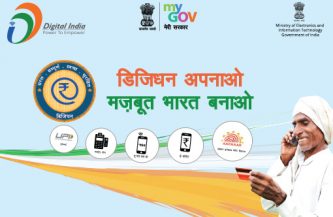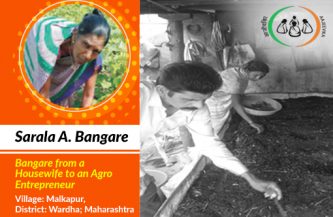Express Lifeline of Narmada Backwaters

The boat ambulance immunizing mothers and children in the most difficult terrain of Alirajpur, M.P.
Situated in the historical Malwa region occupying a plateau of volcanic origin, Alirajpur district comprises some of the most difficult terrain of west-central India as well as Madhya Pradesh. Alirajpur, one of the newest districts of the state is a tribal area with poor transportation services and poor road access.
Alirajpur’s topography is predominantly hilly. The habitats in the hilly areas surrounded by backwater of Narmada River are the most difficult terrain. Sondwa block in particular is extremely remote with many villages like Bhitara accessible only by boat. The surrounding landscape in this backwater zone is a visual retreat to the eyes, but throws up extreme challenges to the health workers in providing healthcare services to the dwellers of the villages nestled in these hilly areas. Named after erstwhile king of the area, Alia Bhil, most of the inhabitants of Alirajpur are from the Bhil tribe. This hilly area is inhabited by a fishermen community.
These hamlets are isolated and quite distant from each other and hence it is difficult to inform each and every hamlet about immunization sessions and gather them at one site. So, often the health workers do the vaccination of pregnant mother and children of these isolated houses using the Janani Express. The Janani express boats are emergency ambulance service provided by the Central government under the National Rural Health Mission as a special measure to connect communities residing in riverine areas.

Apart from difficult to reach villages, the other most difficult obstacles are Tola or Falia (habitats). A revenue village could consist of a number of separate habitations in these tribal areas. The total number of such habitations in MP is estimated to be about 112,000. Most villages in this part of Alirajpur are situated in difficult terrain, thus making it hard for the tribal population to get even basic amenities like food, water and other essential commodities. The Janani express boats are used regularly for providing immunization services in these areas. These 16 villages of Sondwa are declared flood affected areas apart from another 10 villages which are partially affected by flood. On the scheduled day for immunization, the boat ambulance is carrying the health workers to each of these 16 villages. Bhitara is the closest one from Sondwa and takes about two hours to reach whereas the most distant one is Akadiya, which requires 7-8 hours of travel by boat. The health workers serving in the distant villages often stay back in the villages on the first day, conduct immunization session on the second day and return back to Sondwa on the third day.

Summers in this region is a difficult time with temperatures touching as high as 44 degree Celsius. At the bank of Narmada, the temperature is usually another 2 degrees high than the normal with high humidity. Working outdoors become difficult for the Immunization team visiting this area. But this weather is not a deterrent for the determined and dedicated team of workers. In spite of these extreme weather conditions the implementation of the immunization programme during MI was smooth under the leadership of young and enthusiastic Dr. Narendra Bhaydia, the District Immunization Officer of Alirajpur.
During the Intensified Mission Indradhanush rounds where focus was on reaching out to children left out or missed in the remotest corners of such difficult areas, block level officials also accompanied the health workers to the immunization sessions travelling with them to these far-flung areas.

After the ride, a challenge awaits them – A climb up the rocky hills under the scorching heat of the sun to reach the hamlets, where the session sites are scheduled. Now ASHAs have also joined this team. The mothers and children often travel from different hamlets to attend the immunization session sites.

Most of the residents of these village belong to Bhilala tribe. The Bhilala are an ethnic community formed by marital union of Rajput warriors and Bhil chieftains’ daughters. Due to remoteness of these areas, GPS and mobile network do not function here and communication is indeed a challenge. The block officials along with the help of health workers developed handmade maps of all these villages. Toilets made with government aids used for IEC in local language to make the dwellers aware.

For almost 20 years, ANM Smt. Preskila Parmar is serving this area single handedly. Responsible for providing life-saving interventions, she administers vaccines to over 5,000 people in the five villages that she covers. Once she reaches, Parmar travels on foot around the housing clusters, each of them several kilometers apart, since there are no roads or other form of transport. Preskila ensures that each child in the village is administered their routine vaccines. It’s the selfless and continuous efforts of the health workers like Preskila Parmar that makes the mothers and children of these hard to reach areas safe and secure from some of the deadly diseases.

It’s the third day of the visit and as the sun sets in the west, these health workers start traveling back to Sondwa after successfully completing the immunization sessions. Once they reach safely at Sondwa, these health workers never forget to pay their tribute and perform ritual to convey their gratitude towards mighty Narmada, considered as one of the holiest rivers of India. These workers sensitize, educate, inform the community, and close the last-mile gap, ensuring that every child is immunized and that the entire community is protected from vaccine preventable diseases.







